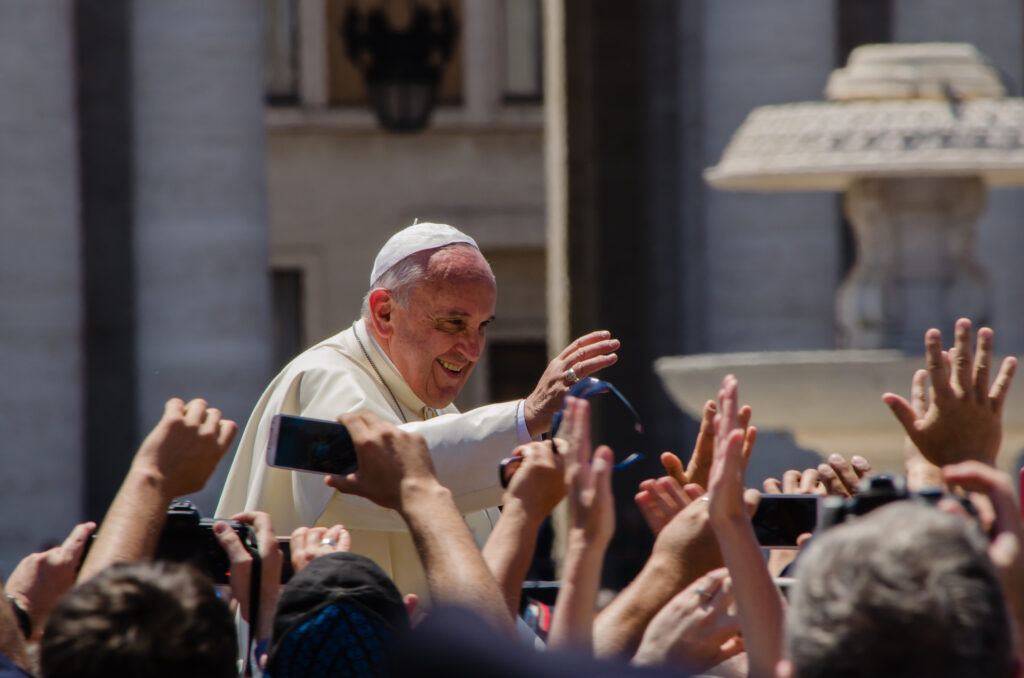Over twelve years, Pope Francis opened long-silent conversations on gender equality in the Church, even though his reign was marked by paradoxes on women’s inclusion. However, his legacy also rests on his powerful appeals for peace and urgent action on climate justice.

Pope Francis, the first Jesuit and Latin American pontiff, has died at the age of 88. Born Jorge Mario Bergoglio in Buenos Aires, he became pope in 2013 after the unprecedented resignation of Pope Benedict XVI.
In the years that followed, he became known for his focus on calls for peace, action on climate change, and the plight of the marginalized. UN Secretary General António Guterres argued he was “a messenger of hope, humility and humanity.” Pope Francis issued the first of two papal encyclicals urging global leaders to act on reducing air pollution.
Yet, while hailed for his openness and tone, his tenure also drew sustained attention from feminist theologians, Catholic women religious, and reformers seeking deeper structural changes in Church teachings on gender, sexuality, and leadership.
A Pope of Paradoxes?
Pope Francis famously said early in his pontificate, “Who am I to judge?” when asked about gay priests, setting a more inclusive tone. He later emphasized the need for the Church to welcome LGBTQ+ individuals with “respect and sensitivity.” He condemned gender-based violence, advocated for equal pay, and was unflinching in calling out patriarchal injustice. He appointed Sister Raffaella Petrini, an Italian nun, as the first woman governor of the Vatican City State
However, as papal contributor Candida Moss argues even though he seemed more progressive than his predecessors on issues like LGBTQ+ inclusion and communion for divorced and remarried Catholics, when it comes to the role of women in the Church, he held a more traditional line.
Pope Francis did establish a commission to explore the possibility of women deacons, but that ultimately didn’t lead to any substantial changes. This is an area where many progressive Catholics felt disappointed. They hoped he would have gone further, perhaps even opening the door to ordination for women, but that didn’t happen.
Incorporating Global Dynamics to Understand Pope’s Legacy
What makes this particularly challenging is the global nature of the Church. While progressive Catholics in parts of Europe or North America may push for inclusion and equality, Catholics in other regions often hold more conservative views. African Cardinals, for example, have voiced concern over Pope Francis’ approach to gender roles, LGBT inclusion, and broader social reforms.

